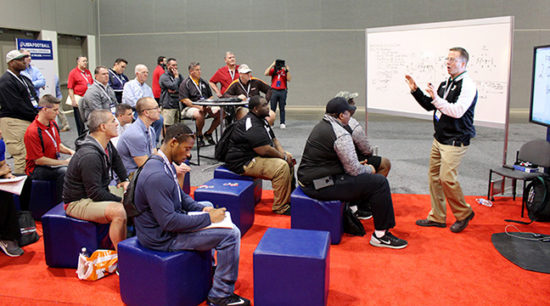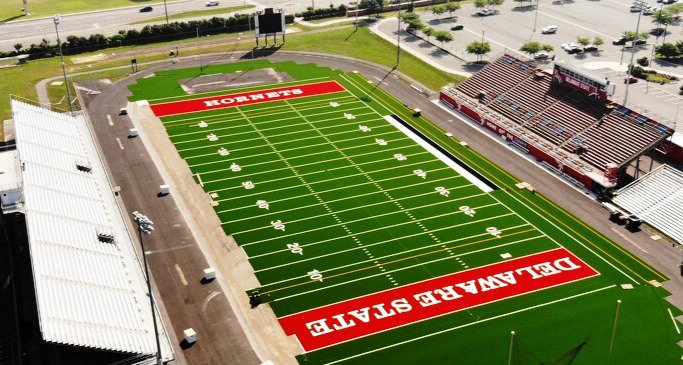ADs, coaches must embrace value of professional development
When we think about athletic budgets, necessities like equipment, salaries and facilities costs spring to mind. You typically don’t consider professional development to be a critical part of your spending, but if not, that’s something you should change.
 This applies to most careers. While in journalism school, I was fortunate to be involved with a student publication that valued professional development, allowing staff to attend conferences and continuing education seminars around the nation. Suffice to say, I learned just as much off my campus as I did on it.
This applies to most careers. While in journalism school, I was fortunate to be involved with a student publication that valued professional development, allowing staff to attend conferences and continuing education seminars around the nation. Suffice to say, I learned just as much off my campus as I did on it.
Nearly 10 years ago, when the recession began to suffocate athletic budgets, professional development was one of those “luxuries” cast aside. When you consider travel, accommodations and other expenses, sending one coach to an out-of-state convention could easily cost more than $1,000. Some say it’s worth it, while others would rather preserve the money.
Take a lesson from some of the nation’s most accomplished coaches and athletic programs. When you look back at the “Champion programs” featured each year in Coach & Athletic Director, you’ll find a wealth of sports departments that have made professional development a priority.
In 2013, we featured University School of Milwaukee (Wisconsin). Its athletic director, Rick Johns, said professional development would always play a role in his department, regardless of the budget. He believed well-educated coaches provided a safe environment for his student-athletes.
» RELATED: 8 ideas to fund coaches, AD education
 “I’m talking about student safety here,” Johns said. “Every penny I spend, it’s all about how am I helping the kids. If I’m helping them through student safety, it’s easy justification.”
“I’m talking about student safety here,” Johns said. “Every penny I spend, it’s all about how am I helping the kids. If I’m helping them through student safety, it’s easy justification.”
Johns added that if his school decided to eliminate professional development spending, he would do his own fundraising for it.
“I think it’s so important,” he said. “I would spend money on that before I would buy new uniforms.”
This is a common theme among coaches. I recall speaking with former University of Michigan football coach Brady Hoke, his brother and former Chicago Bears assistant coach Jon Hoke, and Wichita State University men’s basketball coach Gregg Marshall, and they all had the same advice for aspiring young coaches: Attend conferences, network and continue improving your knowledge. That’s how you move forward.
On the surface it may seem difficult to justify the expenses, but consider what you’re getting in return. This provides programs with an educated leader who is confident that his or her school believes in their professional growth.
If it’s a matter of funding, consider applying for grants through the National Federation of State High School Associations. If it’s a question of worth, ask your coaches to follow up with a written summary of what they learned at the convention and how they believe it can help them in the future.
Education is a school’s main purpose, and just as you seek to advance the minds of your students, you should do the same for your staff. Don’t let money stand in the way.
This article was published in the February 2014 edition of Coach & Athletic Director.





